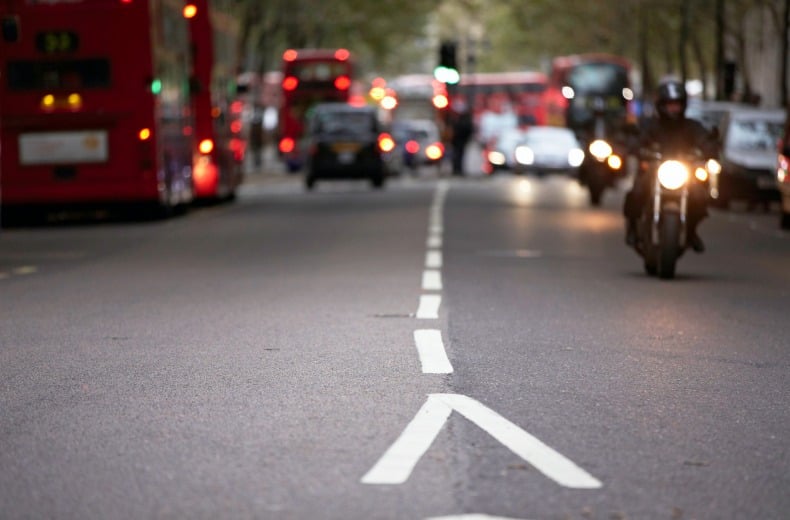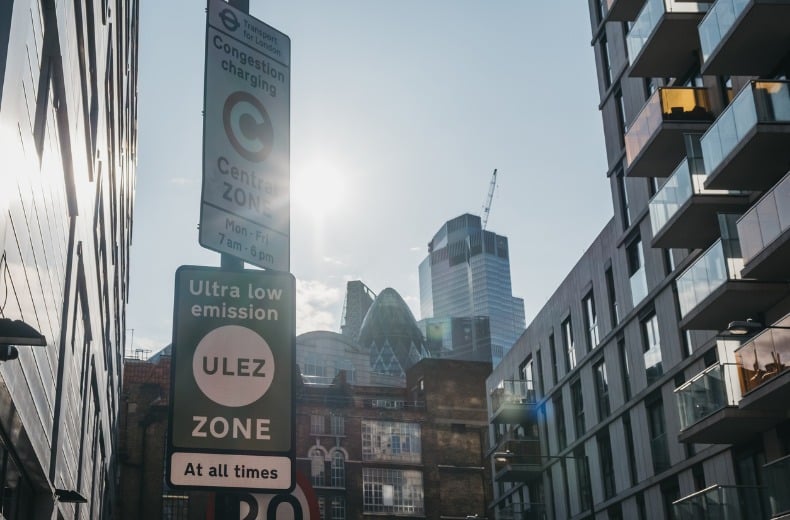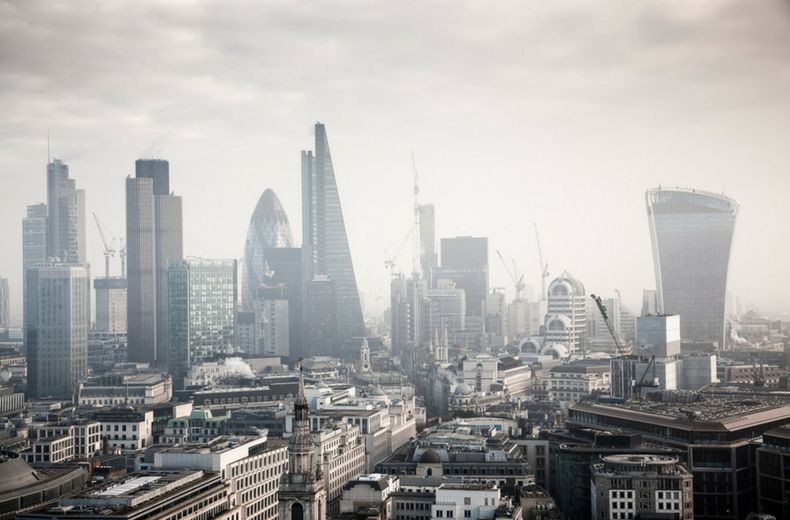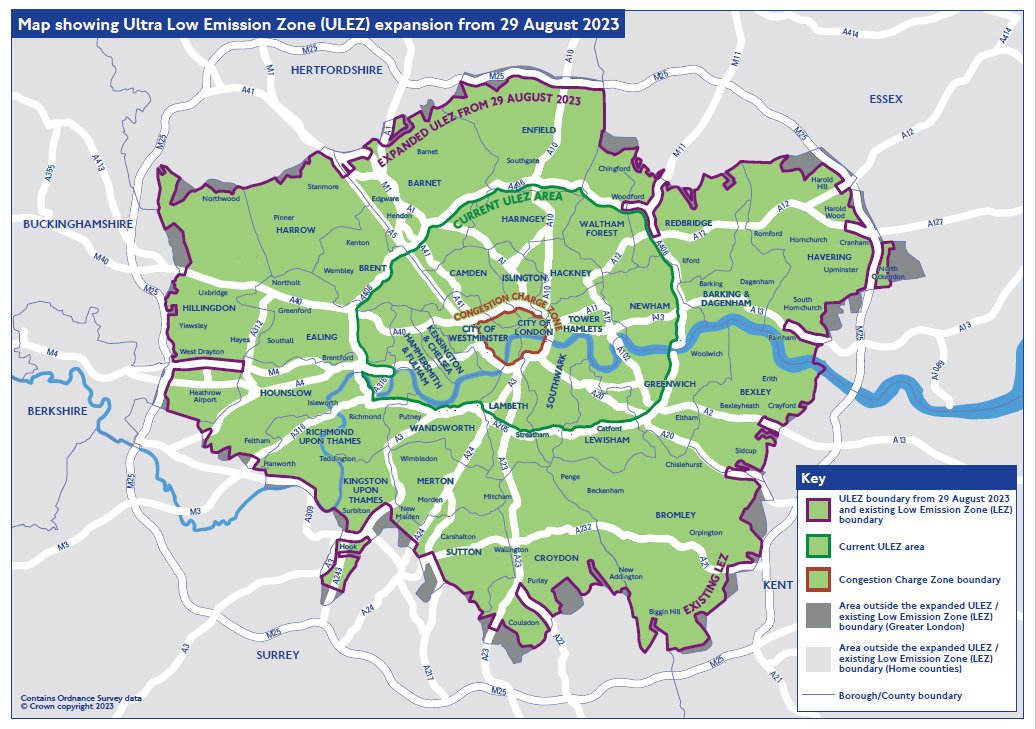London ULEZ operates 24 hours a day, 364 days a year (with the exception being Christmas day) and covers almost all of Greater London. If your vehicle doesn't meet the ULEZ emissions standard (and isn't exempt) then you will need to pay a £12.50 daily charge to drive within the zone.
Read our in-depth guide to get up to speed with the latest 2025 ULEZ rules, changes and vehicle exemptions.
What is the London Ultra Low Emission Zone (ULEZ) and why do we have it?
The London ULEZ was introduced in 2019 to discourage drivers of high-polluting vehicles from using roads in central London.
The scheme was launched by Boris Johnson when he was Mayor of London and initially covered the same area as the Congestion Zone.
ULEZ was expanded in 2021 to include everything within the North Circular Road (A406) and South Circular Road (A205).
Research in 2024 found harmful nitrogen dioxide and particulate matter levels in outer London were 22% lower than before the ULEZ and its expansion.1
Car troubles?
Book a diagnostic test with us today. RAC Mobile Mechanics will check your car for faults, talk you through any repairs you might need, and give you a report for your records.


How much does the ULEZ cost in 2025?
Drivers of all cars, motorcycles and vans (up to and including 3.5 tonnes) that don’t meet the minimum ULEZ emissions standards must pay a £12.50 daily charge.
What are the London ULEZ rules in 2025?
London ULEZ rules for cars
Euro 6 emission standards for diesels and Euro 4 emission standards for petrol-powered cars. Petrol cars that meet the ULEZ standards are generally those registered with the DVLA after 2006 while diesels are those vehicles first used after September 2015.
London ULEZ rules for vans
Euro 6 emission standards for diesels and Euro 4 emission standards for petrol-powered vans.
Vans, lorries and HGVs weighing more than 3.5 tonnes do not need to pay the ULEZ charge.2
London ULEZ rules for motorcycles and mopeds
All motorcycles and mopeds need to meet Euro 3 emissions standards. Again, the London ULEZ will be enforced based on the declared emissions of the vehicle rather than its age – but generally speaking, Euro 3 engines are those first registered with the DVLA after July 2007.
London ULEZ rules for HGVs
If you drive an HGV over 12 tonnes in Greater London at any time, you will need an HGV Safety Permit to show that your vehicle meets the Direct Vision Standard (DVS). Vehicles without a permit will be subject to a penalty charge notice. Applying for a permit is free.
London ULEZ zone map 2025
As you can see from the TfL map above, the new London ULEZ includes almost all of Greater London and spans from Enfield in the north to Croydon in the south.
This means you must pay a daily charge of £12.50 when you enter any of these areas if your car, van or motorcycle doesn’t meet the ULEZ emission standards.
Which vehicles are affected by the London ULEZ in 2025?
The ULEZ is designed to limit the number of older, high-polluting vehicles from entering London - this means diesel cars and vans are penalised more than petrol vehicles.
Diesel cars that meet the ULEZ standard are generally those first registered with the DVLA after September 2015, while compliant petrols tend to be vehicles first used after 2006. Owners of vehicles that don’t meet the following emissions standards have to pay the daily ULEZ charge.
What are the London ULEZ charge times in 2025?
The London ULEZ applies 24 hours a day, every day of the year, except Christmas Day (25 December).
Check if your vehicle is ULEZ compliant in 2025

The Transport for London (TfL) vehicle checker will tell you if you need to pay the ULEZ charge, the London Low Emission Zone, and the Congestion Charge.
All you need is your vehicle registration number and country details.
Is my vehicle exempt from the ULEZ charge in 2025?
TfL’s full list of discounts and exemptions can be accessed here.
Keepers of vehicles registered with a ‘disabled’ or ‘disabled passenger vehicles’ tax class will be exempt until 24 October 2027 as long as their vehicle doesn’t change tax class.3
Do I still have to pay the Congestion Charge in 2025?
Yes, the charge is in addition to the Congestion Charge and applies irrespective of whether your vehicle is ULEZ compliant.
If I don’t pay the ULEZ charge, will I receive a penalty fine?
Yes, TfL uses Automatic Number Plate Recognition (ANPR) cameras to detect entry to the zone. If your vehicle does not meet the ULEZ emission standards, failure to pay will result in a Penalty Charge Notice (PCN) of £180, or £90 if paid within 14 days.
How do I pay the ULEZ?
TfL offers a variety of payment methods which will suit different drivers depending on how frequently they drive into Central London:
- TfL website – where you can register your vehicle for Auto Pay to pay the charge automatically. There is an annual £10 admin fee per vehicle. A Fleet Auto Pay service is also available to business customers using more than five vehicles.
- The TfL Pay to drive in London smartphone app
- By phone: UK: 0343 222 2222 (TfL call charges)
- By setting up a London Road User Charging account. This allows you to set up Auto Pay for up to five vehicles to pay ULEZ charges automatically, make faster payments, and the option to give up to five people access to your London Road User Charging account.
London ULEZ scrappage scheme 2025

The TfL ULEZ scrappage scheme opened on 29 August 2023. The £160 million assistance program provides financial assistance for drivers on lower-incomes and disabled Londoners, as well as London-based registered charities, micro-businesses (up to 10 employees) and sole traders.
The ULEZ scrappage scheme provides up to £2,000 for scrapping a car or up to £1,000 for scrapping a motorcycle. Disabled Londoners with a wheelchair accessible vehicle can apply for up to £10,000 to scrap their vehicle or £6,000 to retrofit it to ULEZ standards.
Only people living within one of the 32 London boroughs or the City of London are eligible for the ULEZ scrappage scheme.
Currently, charities, sole traders, and businesses with 10 or fewer employees registered in London can apply to scrap a van (£5,000 grant) or a minibus (£7,000 grant), retrofit certain vans or minibuses (£5,000 grant) or scrap and replace a van or minibus with a fully electric vehicle (£7,500 or £9,500 grant respectively). After the ULEZ expansion is in place businesses registered in London with fewer than 50 employees can also apply.
London ULEZ advice
- Before driving into London you should check whether you’ll need to pay the ULEZ charge using the TfL vehicle checker.
- You should also check if your destination falls within the expanded ULEZ using TfL’s postcode and map search tool. This will also tell you if you have to pay the Congestion Charge.
- Remember the ULEZ operates 24 hours a day, every day of the year (except for Christmas Day) and will also operate at times when the Congestion Charge may not. When the Congestion Charge is in operation, you will be charged for both. Don’t forget the ULEZ daily charge runs from midnight to midnight, so if you drive within the zone across two days (e.g. before and after midnight), you need to pay two daily charges.
- If you are going to London on a day-trip, check alternatives such as train and tube travel, which may work out cheaper than ULEZ, Congestion Charge and parking options.
- Plan your route carefully – if you are crossing London from north to south, east to west or any direction in-between, you should set your sat-nav to avoid local charge/toll areas.
1 https://www.london.gov.uk/media-centre/mayors-press-releases/new-data-shows-mayors-ulez-expansion-working-better-expected-bringing-cleaner-air-five-million-more
3 https://tfl.gov.uk/modes/driving/ultra-low-emission-zone/larger-vehicles?intcmp=52206
4 https://tfl.gov.uk/modes/driving/ultra-low-emission-zone/discounts-and-exemptions
ULEZ FAQ
- How do I know if I need to pay the ULEZ charge?
The easiest and quickest way to find out if you need to pay the ULEZ charge, is to use the official website, and enter your registration number. You can find the link here.
- What does Euro 6 mean on a car?
Euro 6 is the sixth iteration of the European Union’s emissions standards for cars. The standards were first introduced in 1991, and the Euro 6 regulations were put into effect in September of 2014.
The main purpose of Euro 6 standards is to reduce the amount of harmful emissions from cars. The regulations set limits on the amount of pollutants cars can release into the air, including nitrogen oxides (NOx) and particulate matter. Euro 6 also requires cars to be equipped with an oxidation catalytic converter, an exhaust gas recirculation system, and a diesel particulate filter.
Euro 6 standards are applicable to all new cars sold in the European Union, and they are slowly being adopted by other countries around the world. Euro 6 regulations are stricter than previous versions of the emissions standards, so cars that meet Euro 6 standards will generally produce fewer emissions than those that meet older standards.
While Euro 6 regulations are designed to reduce air pollution, they can also have an impact on car owners. Car owners may need to pay more for a car that meets Euro 6 standards, and they may also need to pay for regular maintenance to keep their cars in compliance with the regulations. In addition, cars that meet Euro 6 standards may not be as fuel-efficient as those that don’t meet the regulations. - How do I know if a car is Euro 6?
To identify if a car is Euro 6 compliant, you should look for the following information on the vehicle’s registration documents or the manufacturer’s website:
- Euro 6 emissions label: This label is typically found on the car’s registration documents and provides information about the vehicle’s emissions standard, fuel type, and CO2 emissions.
- Manufacturer’s website: Many car manufacturers provide information about their vehicles’ emissions standards on their websites. You can also look for articles related to the Euro 6 standard to determine if the vehicle meets the latest requirements.
- Vehicle emissions test results: Vehicles must pass an emissions test to be deemed Euro 6 compliant. The results of this test should be available to view on the vehicle’s registration documents or on the manufacturer’s website.
- What are ULEZ requirements?
Ultra Low Emission Zone (ULEZ) requirements are rules set by local governments to reduce air pollution. They are designed to reduce the amount of pollutants and emissions from vehicles in certain areas. They also encourage people to switch to cleaner, more efficient vehicles.
- What cars are not allowed in ULEZ?
As of April 2021, all cars, vans, motorcycles, and other vehicles must meet the ULEZ standards or pay a daily charge to enter the zone.
Any vehicle that does not meet the ULEZ standards are not allowed in the zone. This includes most petrol cars and vans registered before 2006 and diesel cars and vans registered before 2015. Other vehicles, including lorries, buses, coaches, and motorised horseboxes, must meet the Euro 6 standards or pay the daily charge.
- What makes a car ULEZ compliant?
In order to be London ULEZ (Ultra Low Emission Zone) compliant, a car must meet certain emission standards. The standards are set by the Mayor of London and enforced by Transport for London.
To be London ULEZ compliant, a car must meet the Euro 6 emission standards for both Nitrogen Oxides (NOx) and particulate matter (PM). This means that the car must emit no more than 80mg/km of NOx and 4.5mg/km of PM.
Petrol cars and vans registered before 2006 and diesel cars and vans registered before 2015 are unlikely to be compliant.
- Can you drive petrol in ULEZ?
Yes, you can drive petrol in London ULEZ. The Ultra Low Emission Zone (ULEZ) is an area in central London where the most polluting vehicles have to pay a daily charge to drive. The ULEZ affects petrol vehicles that do not meet the Euro 4 emissions standard, which generally means vehicles registered before 2006.
However, petrol vehicles that meet the Euro 4 emissions standard are exempt from the ULEZ charge. This means that if your petrol vehicle was registered after 2006, you can drive in the ULEZ without paying the daily charge.
If you are unsure whether your petrol vehicle meets the ULEZ standards, you can check online using the Vehicle Checker tool on the Transport for London (TfL) website.
- Is there a charge for diesel cars in London?
Yes, there is a charge for diesel cars in London. The Ultra Low Emission Zone (ULEZ) in London is a daily charge that applies to diesel cars and other vehicles that do not meet certain emission standards. The charge is £12.50 for most vehicles, including cars, motorcycles, and vans, and is in addition to the Congestion Charge of £11.50. The ULEZ charge applies from 7 am to 10 pm every day and applies to all vehicles that enter the London ULEZ area, even if they only drive through it. The charge is in place to reduce air pollution in London and to improve air quality in the city.
The charge will apply to most diesel cars and vans registered before 2015.
- What petrol cars are exempt from ULEZ?
Petrol cars that are exempt from ULEZ are those which meet the Euro 4 standard or higher. Euro 4 emissions standards were introduced in 2005, so petrol cars which were registered after this date with a petrol engine and a catalytic converter are exempt.
- When did the ULEZ start?
The London Ultra Low Emission Zone (ULEZ) came into effect on April 8th 2019. The ULEZ was introduced to reduce air pollution in London it requires most vehicles to meet certain emissions standards or pay a daily charge when driving within the zone. The ULEZ covers most of London, and is in operation 24 hours a day, 7 days a week, 365 days a year.
- What year cars are ULEZ compliant?
Petrol cars and vans registered after 2006 and diesel cars and vans registered after 2015 are very likely to be compliant for London’s ULEZ.
- What petrol cars meet ULEZ standards?
If you’re looking for a petrol car that meets the ULEZ standards, you’ll need to make sure that your vehicle meets the Euro 6 emission standard. Most petrol cars built after 2006 will likely be compliant. You can check online using the Vehicle Checker tool on the Transport for London (TfL) website to see if your petrol car is compliant.
- Which diesel cars are exempt from ULEZ?
If you are unsure whether or not your diesel car meets the Euro 6 standard for NOx emissions, you can check the emissions standard on the vehicle’s registration certificate (V5C) or on the TfL website.
You should also bear in mind that any diesel car registered before 1 September 2015 will not meet the Euro 6 standard for NOx emissions, and therefore it will not be exempt from the ULEZ.
To summarise, cars with diesel engines that meet the Euro 6 standard for NOx emissions are exempt from the ULEZ. - When did ULEZ expand to cover all of London?
The ULEZ was expanded to cover all of London on August 29th 2023.


















